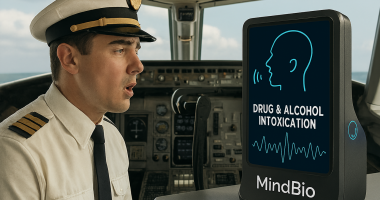Mental health, as we know, controls a large part of how we interact with the world around us.
Our next guest knows this and is working to improve the mental health of those struggling by using psychedelics, specifically mushrooms.
Psychedelics are not federally legalized, but if they were, they may help those dealing with mental disorders like bipolar, depression, and PTSD.
Today, we are joined by the passionate Tim Moore, who is the CEO and Chairman of the Board of the biotechnology company HAVN Life Sciences.
Hello, and thank you for joining us today, Tim.
TMH: Anything involving science is always fascinating, especially science looking to improve mental health. Can you give our viewers a quick explanation as to why you are so enthusiastic about the psychedelic industry?
TM: Well, as you pointed out, mental health is a huge issue. It’s a global issue with it afflicting a significant portion of the population and with really dire consequences, the great benefit of psychedelics is unlike traditional treatment, medication-type pharmaceuticals that people treat, it’s not about masking symptoms. I mean, regrettably, the best that a lot of mental health patients can hope for today is to find the right combination of stuff that may include opioids and alcohol and other substance but find a combination that numbs them enough to get through the day and I happen to think that that is part of the reason we see so much suicide is people get tired of either being in pain or being numb. But what psychedelics can do through this process called neuroplasticity is actually heal you and recover you from that so that your brain is operating differently, and you can actually look forward to living your life, spending time with a significant other, going on vacation and being a productive human being again. So that’s what excites me. For years, what we’ve done is we’ve treated mental health patients to make them easier to live with, not to make their lives better. Psychedelics can actually make their lives better.
TMH: Mental health has been at the forefront of lots of conversations, especially coming out of the COVID lockdown. Even though it’s not new, the harm and weight mental disorders add to someone’s life, why do you think people are just NOW discussing this more openly?
TM: I think that it’s been a long term, I’ll call it like a tectonic trend with things shifting slowly. It really wasn’t that long ago that we just called these people crazy and put them in asylums and sanatoriums and didn’t want to think about them. I mean, you think of the movie One Flew Over the Cuckoo’s Nest, which wasn’t that long ago that that was public attitude, but over time with public service announcements with high profile celebrities talking about their own mental health issues, all of that has caused people to change their attitude. So now it’s okay not to be okay. It’s acceptable cocktail chatter to say I’m seeing a therapist. That wasn’t the case for our parents. Absolutely not. So it’s changed in a generation that it’s now acceptable. I think that the Covid Pandemic has just made more things come forward, and the people being, whatever the consequences were for that individual, whether they lost a job, lost a loved one, had someone die and they couldn’t even have a funeral for them or for frontline, first responders, whether the medical people working under battlefield conditions or whoever.
I mean, when was the last time we built temporary morgues? I mean, not in my lifetime. Right. So it was an acute event on a global scale that did bring some conversational mental health to the forefront.
TMH: When cannabis became legalized, I think some thought psychedelics would follow that trend too. In your opinion, why has there been such a standstill around this form of treatment?
TM: It’s really two things. First of all, it’s rooted. You go back to the early seventies, the war on drugs, psychedelics got caught up in that quite wrongfully because there had been, at that point, decades of research that showed true benefit from psychedelics, but the war on drugs shut it down, and so there is this period of languishing, and I think there’s still a stigma around psychedelics, a lot of misinformation and now what’s happened is the sophistication of this research has come to light. Places like John Hopkins University and Kings College and the University of Toronto and UBC and places like that that have centers for psychedelics that have legitimized that science, and I think the other thing that’s happened is we’re seeing public policy evolve as well. So we’ve seen the state of Oregon, we’ve seen cities like Ann Arbor, Michigan and Denver and Washington DC that have decriminalized psychedelics, and so that’s allowed more conversations to take place. We have in Canada now the special access program where Health Canada has approved the use of psilocybin so that doctors can petition on behalf of their patients and get access to it, even though it hasn’t yet been approved as a prescription drug, they’re able to get an exemption. So things are evolving relatively quickly right now.
TMH: Is it just a matter of time before psychedelics become federally legalized?
TM: It is a matter of time, but I think it’s going to come in two stages. I think the first stage will be approval for psychedelics and presumably psilocybin among them to be administered in a clinical setting with a professional on hand because of the potentially intense emotional event that you’ll go through during a psychedelic experience. It’s really not something that should be done on your own, and so I think we’ll see it first approved for use in a clinical setting and likely, there’ll be some cohorts that will be at the front of the queue, and I’d like to see that veterans and first responders are there because I mean we’ve had more Canadian soldiers die of suicide than have died in the last 20 years in battle and it’s just tragic.
I mean, in the United States, there are 22 veterans a day that commits suicide, over 6,000 so far this year, and so I think that as was done with cannabis, we may see veterans at the front of the queue. I think we’re still some years away, though, from approval by Health Canada for you to go to your local drugstore and get a prescription for psilocybin and take it home. I think the risk of misuse and abuse is still too high because of the psychedelic experience. So I think we’ll see it in a clinical setting first and probably for some time.
TMH: In October, the company announced some changes to management and the board of the company. Can you tell me more about this announcement and how has this transition been for HAVN?
TM: Well, the reality is the market conditions at a macro scale right now are pretty challenging. Everybody’s quite aware of what’s happened in the stock market and microcap companies like HAVN Life, really, it’s challenging to raise capital. So what we needed to do was go through some rather profound restructuring, reduce our cash burn, and make some changes to our organization, some of which involved changes to the board as well as my role in order to make sure that we can continue operations until such time as we’re able to raise capital and we hope that there’s a turn in the markets in 2023 and that changes but while we’re waiting for that, we needed to make these structural changes. So it was important for us to do it. It’s been, I have to admit it’s been disruptive, but it has allowed us to continue operations and continue to service our customers and continue to do the work that’s important for us to keep things going.
TMH: What is the company looking to accomplish in the short and long term in terms of goals?
TM: Well, on our nutritional supplement side, which is the second part of our business. We want to continue to build out our retail execution, and we had great news yesterday, we sent out a press release that Loblaws has listed our nutritional supplements on a national basis. So that’s a transformative milestone for us, and we’re really excited to be in the Loblaws network across all of their supermarket banners. So we’ll continue to build that and build our e-commerce business. On the psychedelic side, we’ll continue to be a supplier of naturally dried psilocybin to the researchers that are working in the space as well as to psychedelic retreats in the jurisdictions where that’s legal. So we hope just to keep building that out both the short term and the long term.
Thanks again for joining us, Tim.
We’ve been speaking with Tim Moore, CEO and Chairman of the Board for HAVN Life Sciences. You can follow the company on the CSE under the symbol HAVN or at havnlife.com.
FULL DISCLOSURE: This is a paid article produced by The Market Herald.




